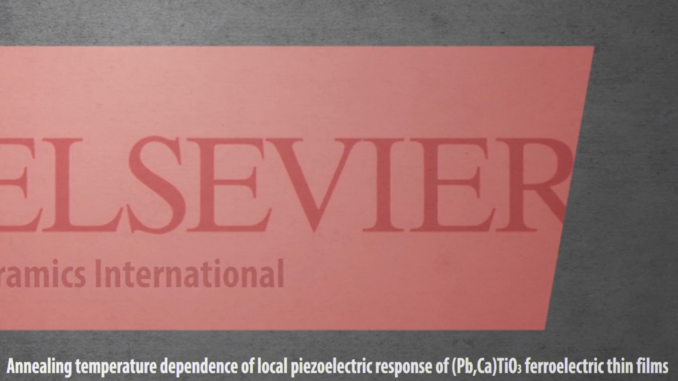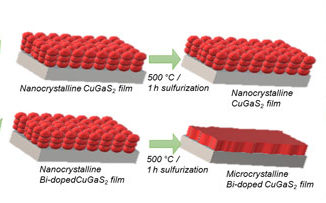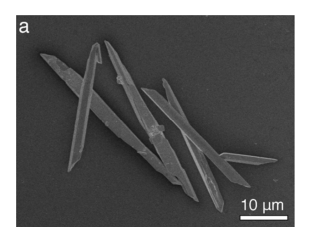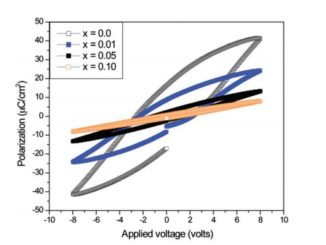
Annealing temperature dependence of local piezoelectric response of (Pb,Ca)TiO3 ferroelectric thin films
Abstract: In this work, we have systematically investigated the piezo/ferroelectric response of (Pb, Ca)TiO3 thin films prepared by polymeric precursor method using simultaneously topography, piezoresponse force microscopy (PFM) and local piezoelectric hysteresis loop measurements. The thin films were grown on Pt/Ti/SiO2/Si substrates and annealed at 400, 500 and 600 °C and subjected to structural characterization using x-ray diffraction, infrared and micro-Raman spectroscopy. The ferroelectric domains structure and the piezoelectric response evolved as a function of thermal annealing temperature as well as the density of active grains (number of switchable domains) progressively increased. Another important characteristic of these films is the onset of large area showing the coexistence of active (stronger piezoresponse signal) and inactive (weak or non piezoresponse signal) grains embedded in the polycrystalline perovskite matrix. A combination of out-of-plane (OP) and in-plane (IP) PFM images revealed local features of polarization component magnitudes in samples surface. Well-defined local piezoelectric hysteresis loop was achieved on top of individual nanometer-scale grains in both samples annealed at 500 and 600 °C, and the switching behavior is evident.
Authors: R.A. Capeli, F.M. Pontes, A.J. Chiquito, W.B. Bastos, Marcelo A.Pereira-da-Silva & E.Longo
Ceramics International
Volume 43, Issue 6, 15 April 2017, Pages 5047-5052
DOI: https://doi.org/10.1016/j.ceramint.2017.01.015




